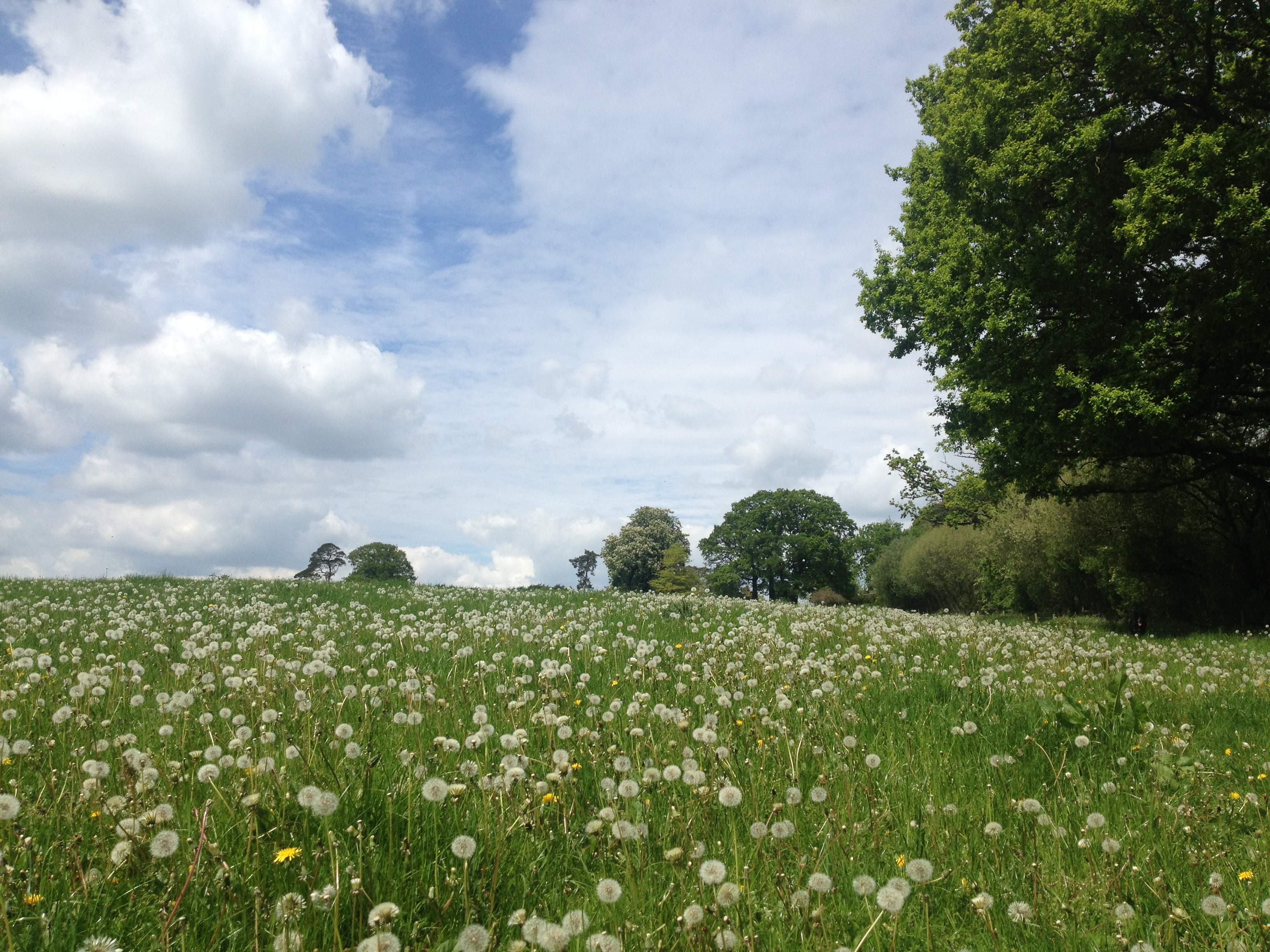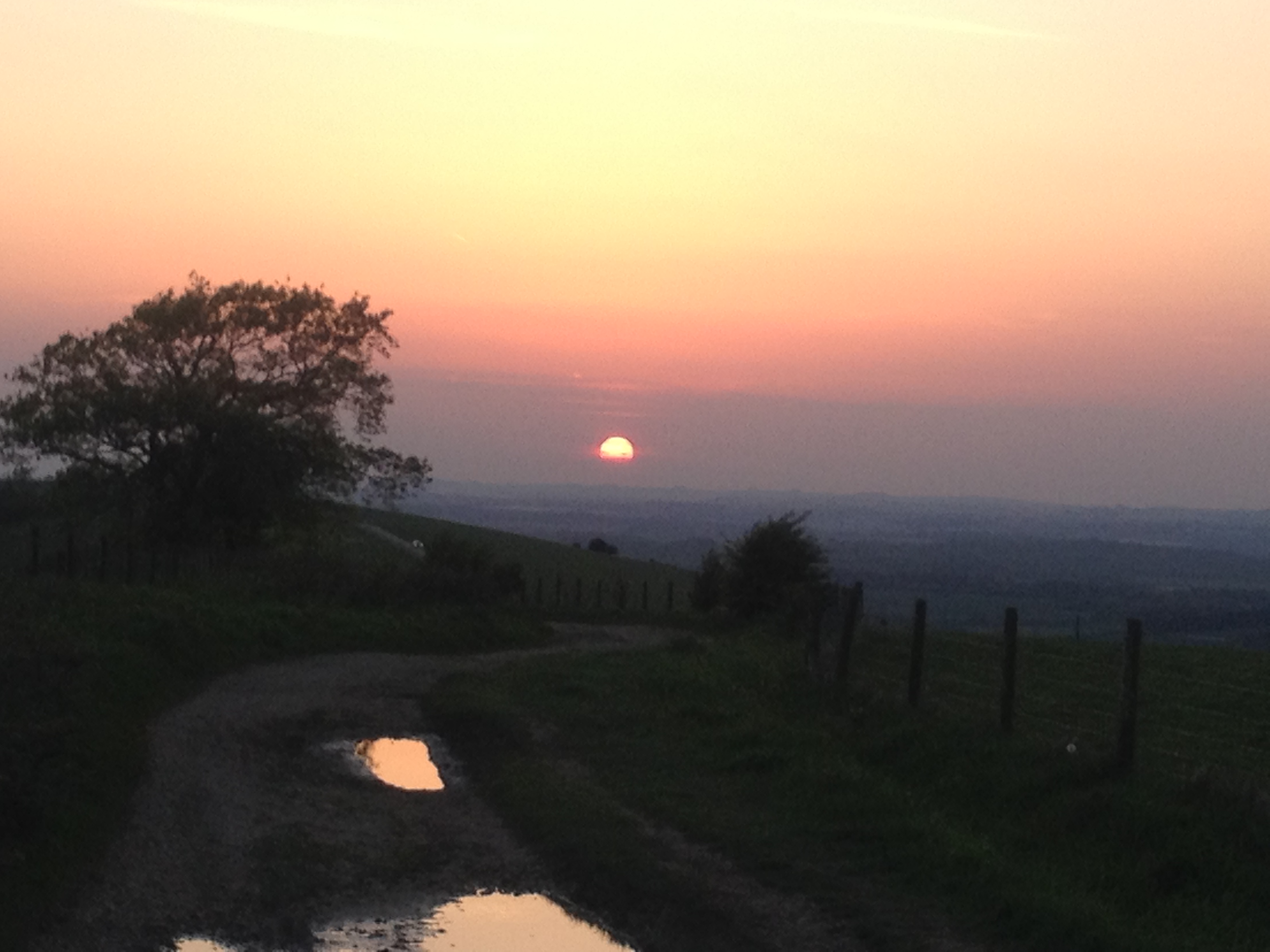Swallows and Gold Days.

There is an absence of Swallows. A solitary bird returned to the wires at Coldharbour Farm a month ago and has only just been joined by another. I’ve seen others passing through, a brief gloss of navy blue, the twitter of several birds issued from one red throat; but the mud cups in the pony barn and tractor shed remain unrepaired. I’m not alone in my concern, locally or country-wide. The pair that returned to a near-neighbour in the cold, wet snap were prevented from feeding by the weather for days in a row – and died – and our chemical-pesticide assault on fly-life is starving exhausted birds. Is this our crisis point?
But the cuckoo has returned and been greeted with such relief, its woodwind notes percussion and salve to the ancient heart of the place. And the countryside is golden: from the intensively-sprayed rape fields, set off against a cornflower blue sky, to the wild suns of dandelions and the wild bird cover crop, where the kale that holds the heavy seedheads up in winter storms, has flowered. The birds are infused by it; goldfinches flash yellow wingbar-epaulettes and yellowhammers sing their light-bulb heads off: canaries in the farmland ‘coalmine’. Whitethroats project their songs from the sunshine-yellow gorse, coconut-vanilla scented and scratchy as the shrub they sing from.

There is jubilation in the hills. After years of dogged, alternate, haranguing, admonishment and encouragement, a new sheep-grazing regime has been drawn-up, agreed and stuck to. The results are in: the long down is golden with cowslips in a way I can’t remember. With them will come insects, pollinators, other flowers, birds: it glows. There are so many cowslips, you couldn’t sit down without squishing one.
My daughter suggests a late picnic tea on the hill. The entrance to the little copse at its foot is backlit by the pale, green-coved lanterns of cuckoo pint, that promise phosphorescence after dark. Our procession of brown boots along the white flint road scuff puffs of chalk dust that leaves a silky sheen on bare legs and resettles on wayside nettles and garlic mustard. All the mud of winter has gone so quickly to dust, it is hard to think that just weeks ago, the snow here drifted above our heads.

The sun goes down and we are entirely alone; the lights from this view of seven counties, remarkably few. Skylarks continue to rise, singing and then, small squadrons of huge cockchafer beetles make their way out of the earth around us and zoom into being. All life is coming up from the earth or under it, to fling itself to the first early stars. A barn owl hunts from the fenceposts below our feet, starlight on its moth-light wings.

In the morning, a single swallow sits on the wire in the farmyard, tail-streamers a taut telemetry of highly strung antennae, its magnetic compass needles trembling between the planet and the human race.
Leave a Reply to nicolawritingCancel reply